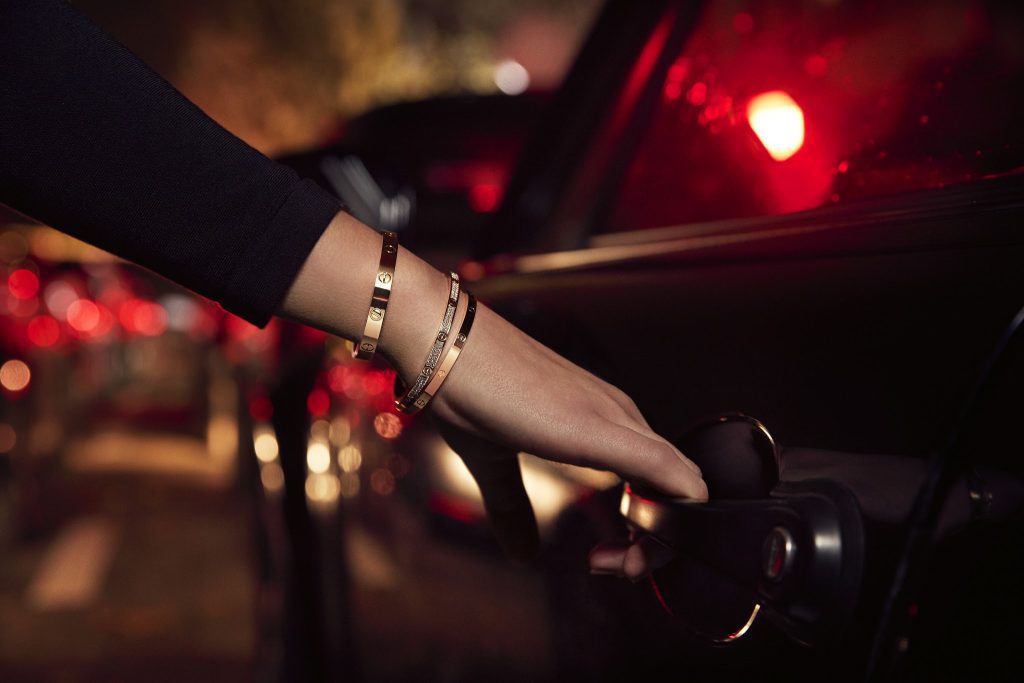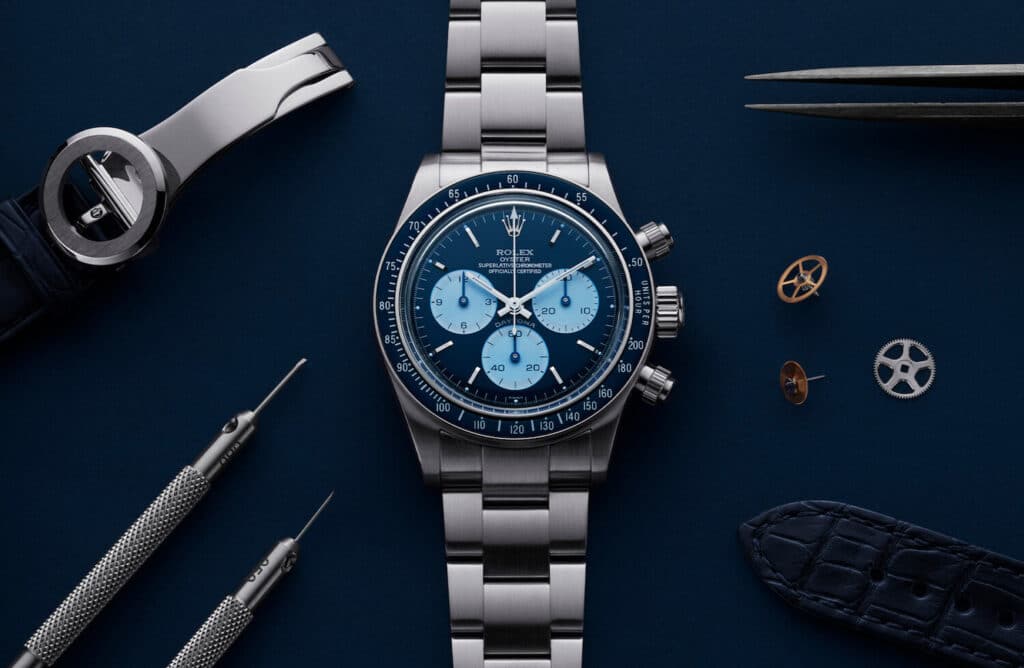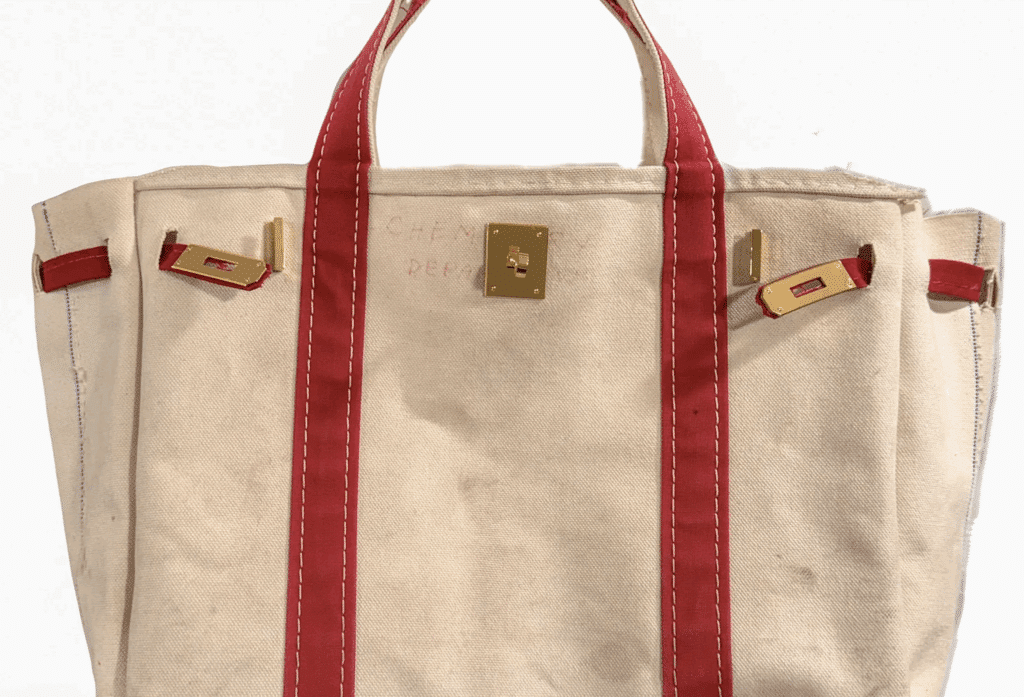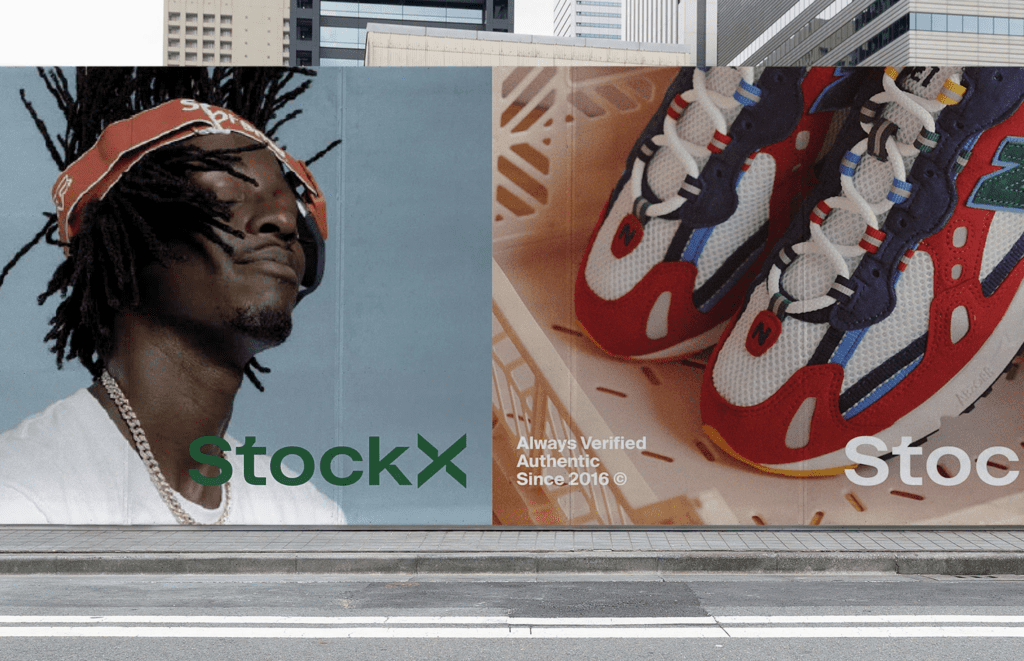Amazon and Cartier have partnered to wage two new lawsuits over the “unlawful and expressly prohibited” sale of luxury jewelry and accessories illegally bearing trademarks of Cartier, including, counterfeit versions of its iconic LOVE bracelet, by sellers on the Amazon marketplace and an influencer peddling “hidden links.” According to the two trademark-centric complaints that they jointly filed on Wednesday with the U.S. District Court for the Western District of Washington, Amazon and Richemont-owned Cartier claim that the defendants, who are identified exclusively by their Amazon user names, “engaged in a sophisticated campaign” to sell counterfeit Cartier products on Amazon, while disguising the products in “an attempt to evade Amazon’s counterfeit detection tools.”
In the newly-filed complaints, Amazon and Cartier allege that from June 2020 through June 2021, the defendants worked together to advertise, market, and sell counterfeit Cartier jewelry by way of a network of Amazon Stores, including one operated by an individual identified by the handle “Phym9y3v,” and in the process, “used Cartier’s registered trademarks, without authorization, to deceive customers about the authenticity and origin of the products and the products’ affiliation with Cartier,” when no such affiliation existed.
Echoing the practices that it alleged in the since-settled lawsuit that it waged against two influencers and a number of sellers on its platform back in November 2020, Amazon claims that “Phym9y3v” used her social media accounts “to direct followers to links for Cartier products – e.g., ‘a LOVE bracelet’,” with the “hidden links” taking customers to product detail pages for generic jewelry products on Amazon and other websites that were being run by the other named defendants.
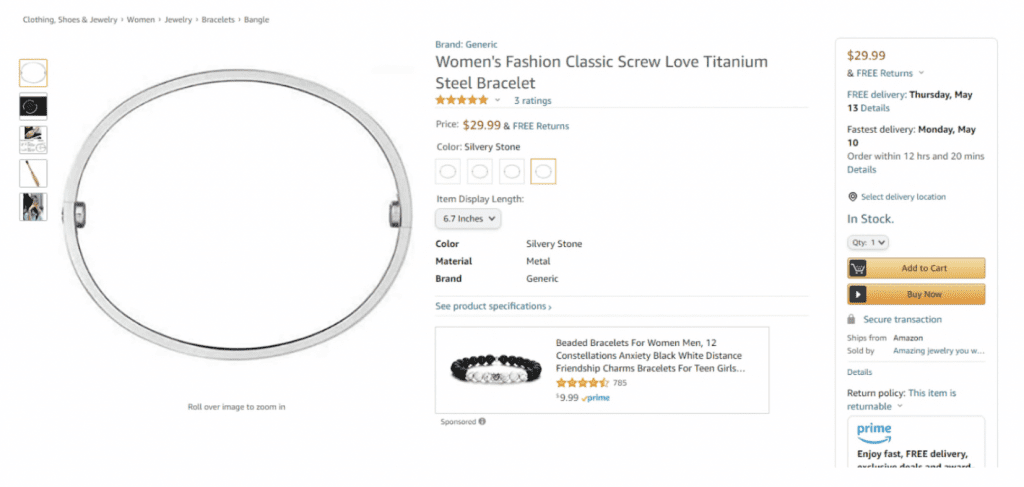
However, despite the relevant Amazon listings “display[ing] seemingly non-infringing, non-branded products available for purchase,” including “carefully curated image[s] that hid the fact that a product bears the screw motif of the authentic LOVE bracelet,” Amazon and Cartier claim that the products that were ultimately shipped to consumers consisted of counterfeit Cartier LOVE bracelets that did, in fact, bear Cartier trademarks. In other words, once the products were ordered, “the defendants shipped counterfeit jewelry bearing unauthorized Cartier trademarks – just as [Phym9y3v] had advertised” in “an attempt to avoid detection by Amazon and to obscure their counterfeiting scheme,” Amazon and Cartier assert.
(In addition to maintaining rights in the Cartier name, Amazon and Cartier assert that Cartier has rights in the “distinctive design” of its LOVE bracelet, which includes “a binding closure and screw motif.”)
All the while, Amazon and Cartier allege that Phym9y3v’s social media posts “leave no doubt that her promotion of counterfeit goods is knowing and willful,” noting that “the landing page for her Instagram account states, ‘high quality copy’ above the link to her Linktree page,” and contained a link with “a photograph of what appears to be a counterfeit Cartier bracelet.”
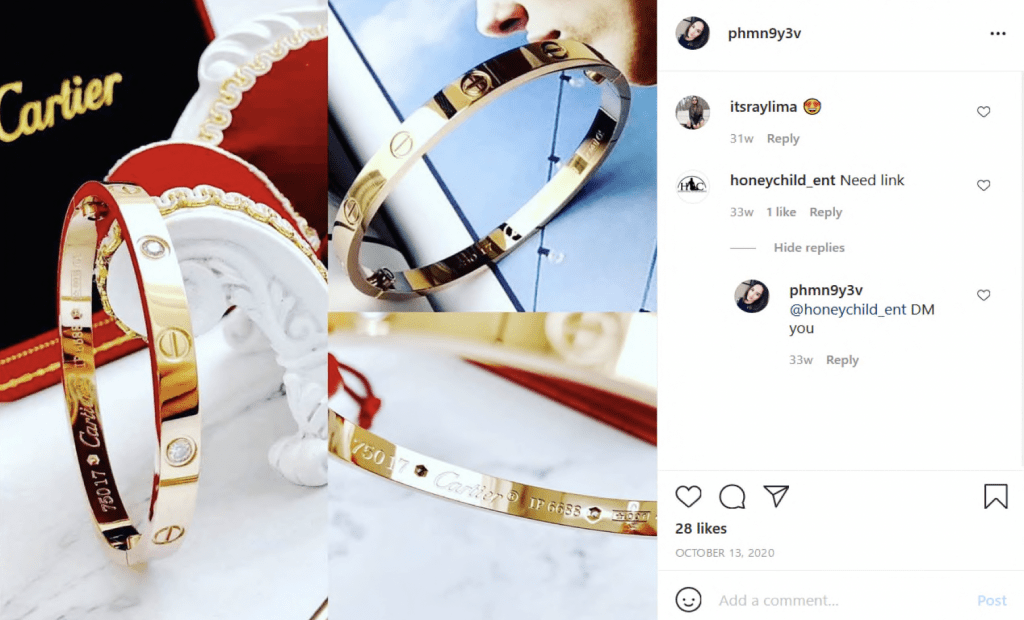
Cartier claims that it “reviewed the images of the products and confirmed that the items are counterfeit,” further alleging that “the products’ serial numbers do not correspond to serial numbers assigned to genuine Cartier LOVE bracelets, and certain of the products’ aesthetic features differ from those of genuine Cartier LOVE bracelets.”
Setting out claims of both direct and contributory trademark infringement, false designation of origin and false advertising, and violations of Washington Consumer Protection Act, Amazon is seeking injunctive relief to bar the defendants from “selling products on Amazon,” “opening or attempting to open any Amazon selling accounts,” and “manufacturing, distributing, offering to sell, or selling any product using Cartier’s brand or trademarks or which otherwise infringes Cartier’s intellectual property on any platform or in any medium,” including Amazon and social media platforms, such as Instagram, as well as monetary damages.
In a joint release on Wednesday, Kebharu Smith, associate general counsel and director of the Amazon Counterfeit Crimes Unit, said, “By using social media to promote counterfeit products, bad actors undermine trust and mislead customers. Amazon will keep investing and innovating to stay ahead of counterfeiters, and working with brands and law enforcement to hold bad actors accountable. We don’t just want to chase them away from Amazon—we want to stop them for good.”
The cases are Amazon.com Inc v. PHMN9Y3V, et al, 2:22-cv-00840 (W.D. Wash.) and Amazon.com Inc v. Yfxf, et al, :22-cv-00841 (W.D. Wash.).







